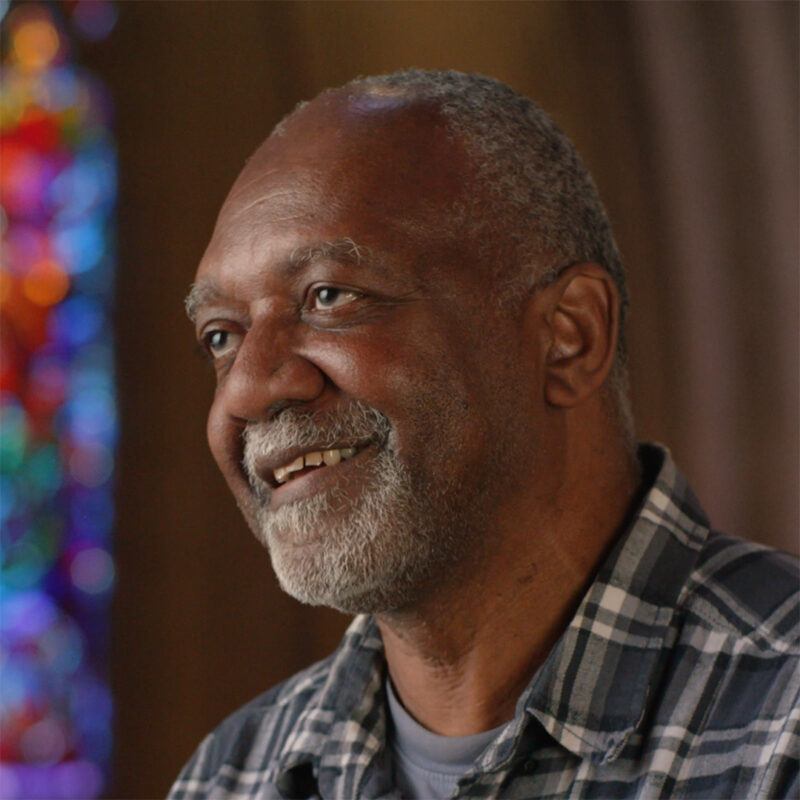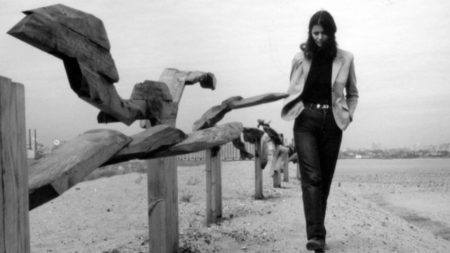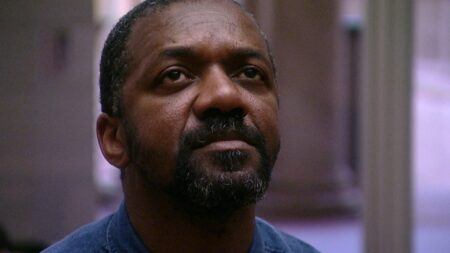Continue playing
(Time remaining: )
Play from beginning
Continue playing "{{ controller.videos[controller.getVideo(controller.currentVideo)].segmentParentTitle}}"
{{controller.videos[controller.getVideo(controller.currentVideo)].title}} has ended.
Being an ArtistKerry James Marshall
Drawing inspiration from Langston Hughes’s influential 1926 essay, “The Negro Artist and the Racial Mountain,” Kerry James Marshall recalls the essay’s famous introduction, in which Hughes describes the struggle of a fellow African American writer. “I don’t want to be a black poet, I just want to be a poet,” Hughes wrote, referring to the inherent burden of race on a young writer’s identity.
The artwork of Kerry James Marshall investigates and reclaims the essence of blackness. Through the oversaturation of his figures’ skin tones to near pitch-blackness, Marshall challenges American culture’s needless fear of darkness. “In his essay, he says what that the artist is really saying is that ‘I want to be a white artist. Because they aren’t burdened by the problem of race,’” says Marshall, accompanied by his Black Romantic series installed at Jack Shainman Gallery in New York. “So who needs to not know, or who needs to not think of you as a Black artist, in order for you to become a real artist?” Marshall asks.
Credits
Producer: Wesley Miller and Nick Ravich. Camera & Sound: Nick Ravich. Editor: Mary Ann Toman. Artwork Courtesy: Kerry James Marshall. Thanks: Jack Shainman Gallery.
Closed captionsAvailable in English, German, Romanian, Italian, Japanese, Korean, Chinese, Italian
Through the Art21 Translation Project, multilingual audiences from around the globe can contribute translations, making Art21 films more accessible worldwide. Translate this video now.
Interested in showing this film in an exhibition or public screening? To license this video please visit Licensing & Reproduction.
Kerry James Marshall was born in 1955 in Birmingham, Alabama, and currently lives and works in Chicago, Illinois. The artist was educated at Otis Art Institute, where he received a BFA in 1978 and an honorary doctorate in 1999. In his work, Marshall interrogates Western art history, recontextualizing the canon to include themes and imagery that have been historically excluded. Through his paintings, drawings, installations, and public works, the artist builds a body of work that privileges the Black figure, using race, history, and everyday Black experiences as the inspiration for his work.
“Black painters have done all kinds of work. It’s the treatment of forms they engage in—that’s what determines the value of the work. Not whether you call them a black artist or not.”
Kerry James Marshall
Being an Artist
Nancy Spero
Yinka Shonibare CBE RA
Ursula von Rydingsvard
Does history represent all of the people who have participated in it?
Kerry James Marshall
Kerry James Marshall
Kerry James Marshall



